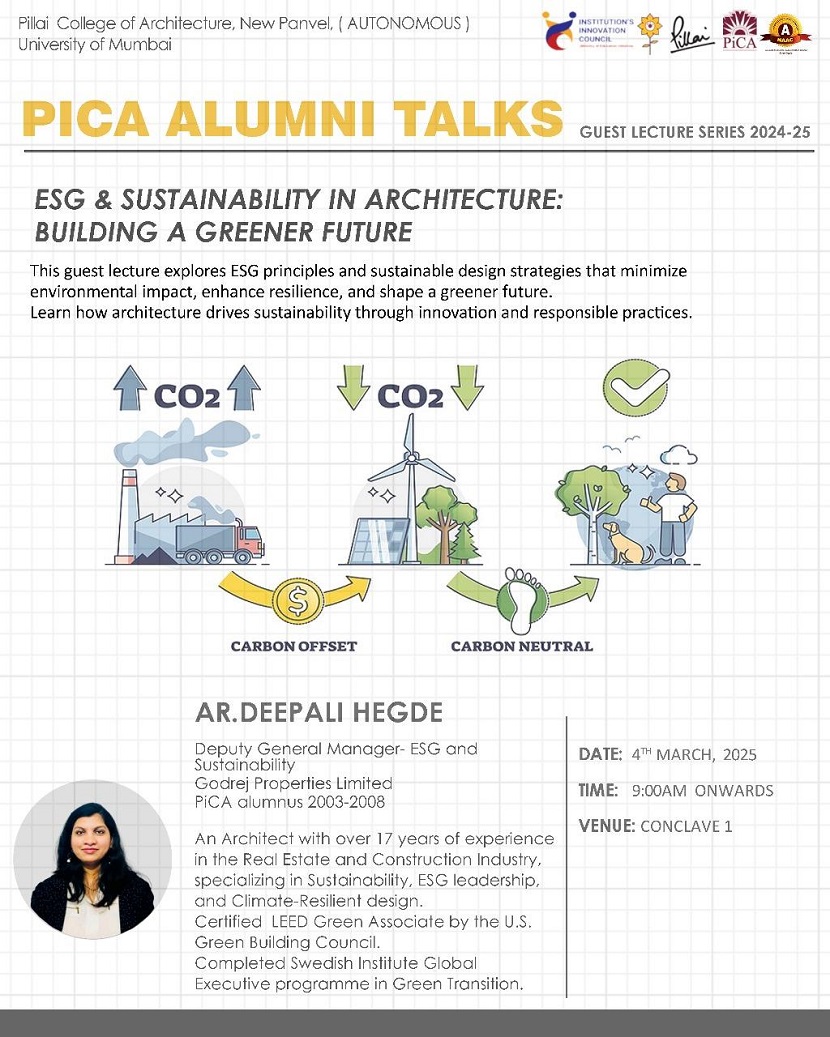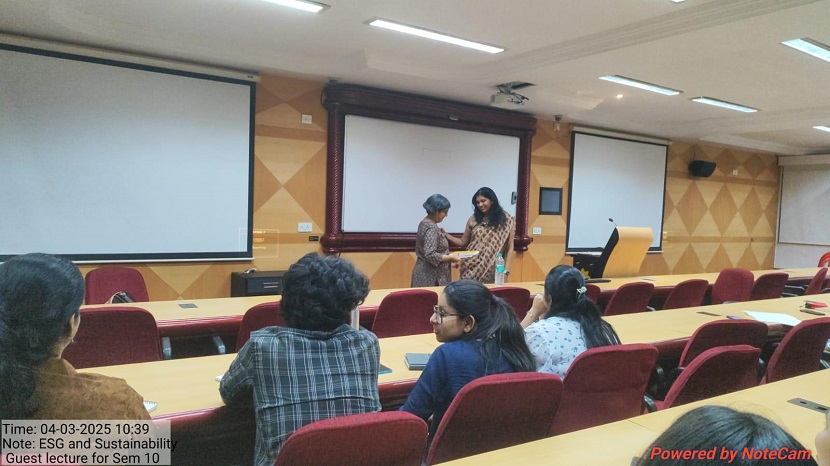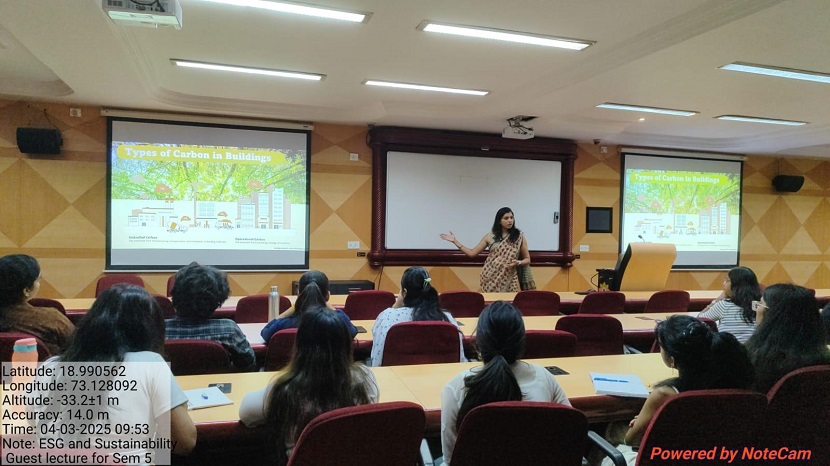| Session | II |
| Year | 2024 - 2025 |
| Date | 4th March 2025 |
| Time | 9:00 a.m. - 10:30 a.m. |
| Venue | Conclave I |
| Faculty Co-coordinator | Prof. Ajita Deodhar, Prof. Sarojini Lohot, Prof. Jagrati Sehgal |
| Faculty Team | Ar. Deepali Hegde |
| No. of Students | 27 |
| No. of Faculties | 4 |
The event took place on 4th March 2025, Tuesday, 9:00 a.m. – 10:30 am. It was very insightful and engaging lecture on “ESG and Sustainability“. The expertise and thoughtful presentation were truly captivating, and we are incredibly grateful for the knowledge and perspectives that was shared.
Ar. Deepali is an Architect with over 17 years of experience in the real estate and construction industry, specializing in sustainability, ESG leadership, and climate-resilient design. Certified LEED Green Associate by the U.S. Green Building Council. She completed the Swedish Institute Global Executive program in Green Transition. She is passionate about driving sustainable transformation through resource-efficient design, green building strategies, and low-carbon construction solutions.
The lecture covered a comprehensive overview of ESG (Environmental, Social, and Governance) indicators and their crucial role in guiding decision-making and establishing criteria for responsible business practices. It highlighted the difference between Sustainability and ESG, emphasizing that while sustainability focuses on long-term environmental stewardship, ESG includes broader criteria involving social and governance aspects. The discussion also delved into ESG ratings and frameworks, explaining how businesses are assessed based on their environmental, social, and governance performance. A key focus was on types of carbon emissions, specifically embodied carbon (emissions from materials and construction) and operational carbon (emissions from daily activities). Examples of Net Zero Carbon buildings, such as the CII – Godrej Business Centre, were provided, showcasing how buildings can be designed to achieve zero carbon emissions. Additionally, the lecture explored concepts like Net Zero Waste, Net Zero Water, and Net Zero Energy, illustrating how businesses and buildings can minimize waste, water usage, and energy consumption with many examples like Sobha City, Thrissur for Net Zero Water Positive and L&T Technology Centre 4, Chennai for Net Zero Carbon Design. The session concluded with a discussion on the significance of greenhouse gases, emphasizing their role in climate change and the importance of reducing emissions to mitigate global warming. Overall, these topics are significant as they provide a comprehensive understanding of how businesses can adopt sustainable practices, reduce environmental impact, and align with ethical governance to drive long-term value, mitigate risks, and contribute to a more sustainable future.
The key takeaway for final-year architecture students is the importance of incorporating ESG (Environmental, Social, and Governance) principles into architectural design and practice to create sustainable, ethical, and future-ready buildings. By understanding ESG indicators and frameworks, students can make informed design decisions that minimize environmental impact while promoting social responsibility and strong governance. The lecture highlighted the distinction between sustainability and ESG, emphasizing their roles in shaping responsible architecture. Students also learned about carbon emissions, including embodied and operational carbon, and how designing for Net Zero Carbon is achievable, with examples of sustainable buildings as models. The concepts of Net Zero Waste, Net Zero Water, and Net Zero Energy were discussed, encouraging students to design with a holistic approach to resource conservation. Finally, the lecture stressed the importance of addressing greenhouse gas emissions in the built environment, equipping students with the knowledge to create buildings that contribute to a sustainable and climate-conscious future.





